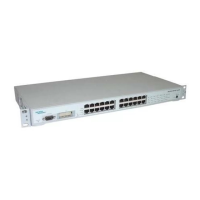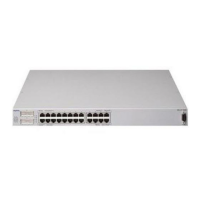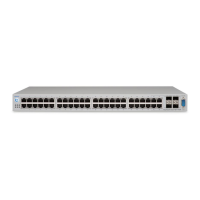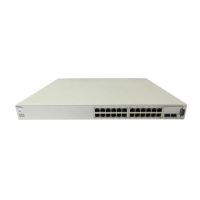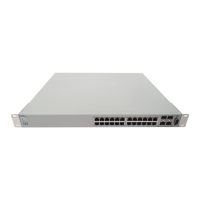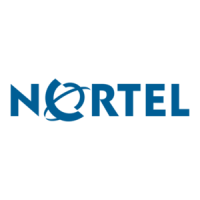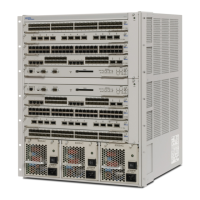Using the BayStack 450 10/100/1000 Series Switch
1-44 309978-D Rev 01
• Temporary Base Unit
If an assigned base unit fails, the next unit in the stack order automatically
becomes the new temporary base unit, as follows:
If the assigned base unit is a Business Policy Switch 2000 (in a mixed stack
configuration), the next Business Policy Switch 2000 unit in the stack order
automatically becomes the new temporary base unit.
If there is only one Business Policy Switch 2000 unit in your mixed stack
configuration, and it fails, the next upstream BayStack 450 switch unit will
become the temporary base unit and will continue stack operation.
The base unit change is indicated by the Base LED on the temporary base
unit’s LED display panel turning on (yellow).
• Automatic failover
The automatic failover to a temporary base unit is a temporary safeguard only.
If the stack configuration loses power, the temporary base unit will not power
up as the base unit when power is restored.
For this reason, you should always assign the temporary base unit as the
designated base unit (assign another Business Policy Switch 2000, if
available) until the failed unit is repaired or replaced. Set the Unit Select
switch on the temporary base unit to Base (up = Base) to reassign it as the new
base unit.
• Removing a unit from the stack
If a unit is removed from the stack (therefore, operating in standalone mode),
the following switch configuration settings revert back to the settings
configured before the unit became a member of the stack:
- IP address
- Console password
- TELNET password
- SNMP community strings
